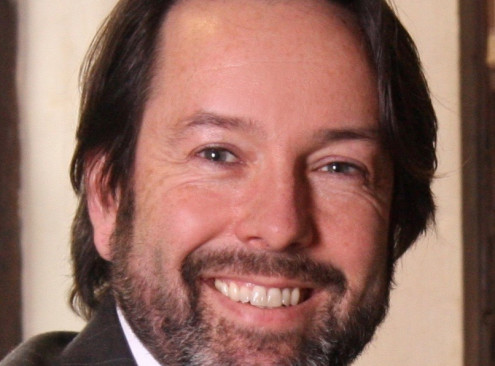© Pint of Science, 2025. All rights reserved.
This special event will host speakers from the Tinbergen Building that was recently closed due to an asbestos discovery. The Tinbergen Building houses world-class departments of Zoology and Experimental Psychology which have been displaced. All ticketing proceeds from this event will be donated to Oxford Homeless Pathways (OxHoP).
Déjà flu: the evolution of influenza
Dr Craig Thompson
(Post-Doctoral Researcher, Department of Zoology)
You can catch flu – short for influenza – all year round but especially in winter. Each year, ‘seasonal flu’ causes 200,000 to 500,000 deaths worldwide. Occasionally, flu can also transfer from pigs, and potentially birds, to humans leading to a massive outbreak known as a pandemic. To date, there have been four documented flu pandemics, the most serious occurring in 1918 when ‘Spanish flu’ caused 50-100 million deaths. My research seeks to address why some flu strains cause so many deaths, whether another flu pandemic will occur and if we can produce a vaccine that protects against all flu strains.
Why does(‘nt) stress cause depression?
Professor Lucy Bowe
(ASSOCIATE PROFESSOR OF EXPERIMENTAL PSYCHOLOGY)
Chronic or severe stress is a known risk factor for most psychological disorders, including depression. Interpersonal stress and trauma appear to be particularly harmful. Yet many people exposed to stressful experiences – including child abuse, neglect and bullying – do not develop depression. This talk will focus on research addressing key questions: Why are some people less likely to develop depression following interpersonal stress and trauma than others? Can we identify factors that help to protect at-risk people from developing depression?
No! It doesnt all start with the Big Bang
Professor Robin Murphy
(Associate Professor (UL) in Experimental Psychology; Fellow and Tutor, Corpus Christi College)
Causation is complex, especially where it involves ‘the person’. Advances in science are made in the face of weak comprehension of causal frameworks. One problem is that the Scientific Method is weak in contrast to the model of understanding to which we aspire. Psychology highlights a further constraint; animals have evolved mechanisms that solve natural causation in a similar manner. There are implications for patient and practitioner as well as their interaction. The world is more complex than we acknowledge and we have evolved to think more simply than we might wish.

Flies in a Flap
Inés Laura Dawson
(DPhil in Interdisciplinary Bioscience at University of Oxford)
Animal flight, and particularly insect flight, has captivated many scientists over the years, and has inspired technology as we know it today. With the help of high speed cameras and modern computer software, Inés will take you on a journey that shows how much we can learn about an insect from its wings alone - and why you should care!

Map data © OpenStreetMap contributors.
Other St Aldates Tavern events
2025-05-19
Under the bonnet of automotive engineering
St Aldates Tavern
108 St Aldate's, Oxford, OX1 1BU, United Kingdom
2025-05-21
Detecting the Undetectable
St Aldates Tavern
108 St Aldate's, Oxford, OX1 1BU, United Kingdom


